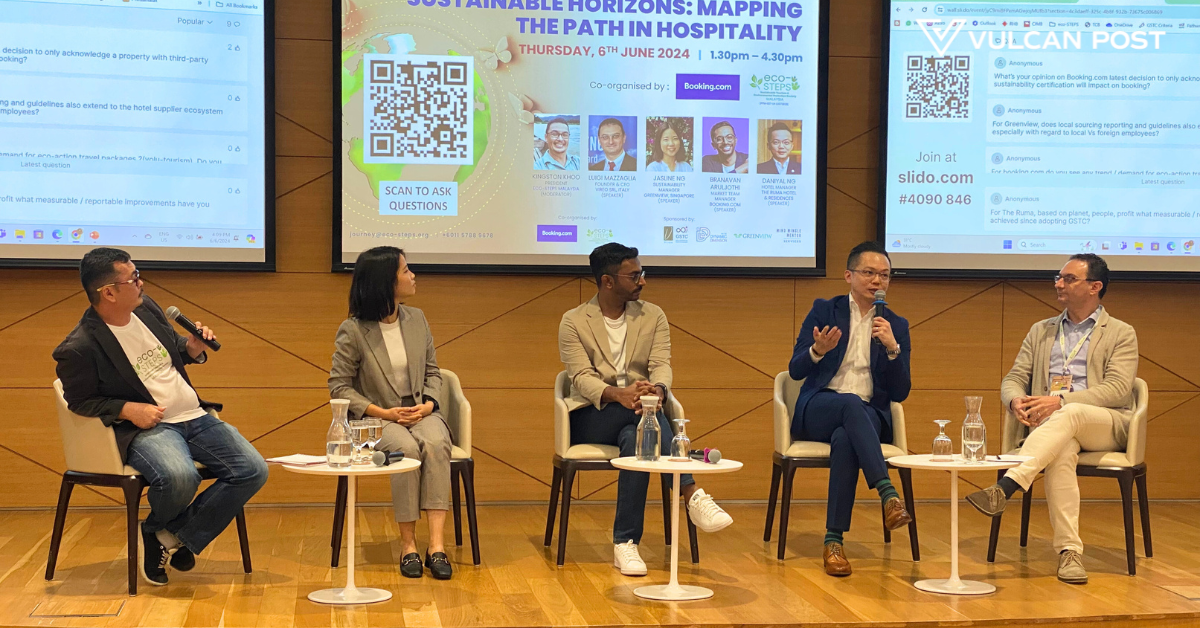The World Economic Forum reported that up to 8% of global carbon emissions are caused by the travel and tourism sector alone. But based on what we’ve heard experts say, you’d be sorely mistaken to believe that travellers don’t give two hoots about sustainability.
Sustainability in this context refers to the environmental, social, and economic aspects. This includes managing waste responsibly, promoting ethical labour conditions, respecting local cultures and communities, and contributing to the local economy.
A survey conducted by Booking.com found that 74% of travellers want the hospitality industry to offer more sustainable travel choices. 43% of respondents are even willing to fork out more money just to support certified sustainable options.
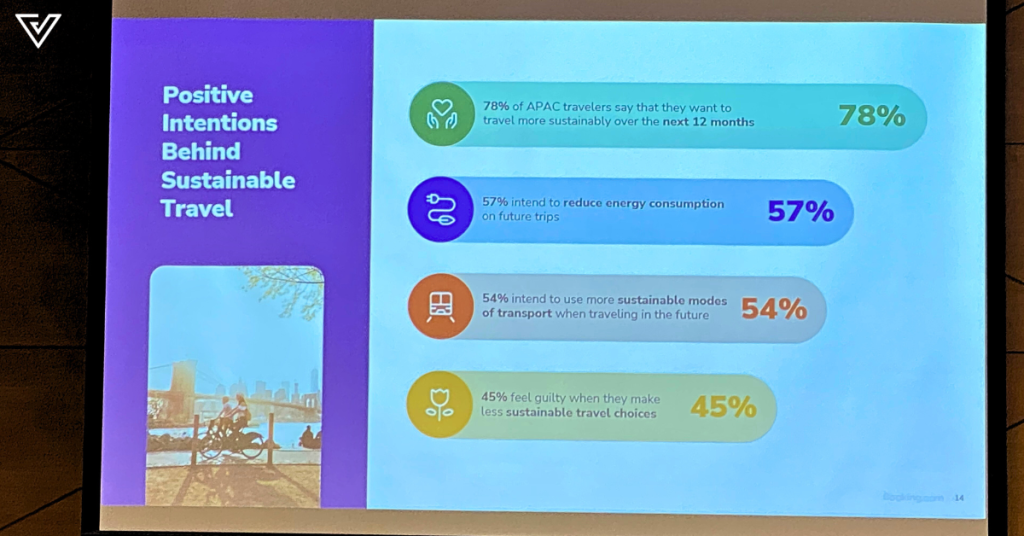
So the question isn’t about whether people want it; the demand is there. How then do Malaysian hospitality players get ahead of this trend?
By getting properly certified, of course
We can all agree that slapping on a label is easy. Plenty of businesses rode the green wave and made bare minimum changes to call themselves environmentally-friendly. (A term for this would be greenwashing.)
However, being actually sustainable is a long-term journey that plays an integral role in how the business operates.
To ensure that customers will trust your claims, hospitality industry players need to be certified by a reputable third-party organisation like the Global Sustainable Tourism Council (GSTC). This way, your sustainable practices are actually credible and meet industry standards.
If your certification is from a global organisation, then you’ll also be globally recognised by travellers worldwide, increasing your appeal.
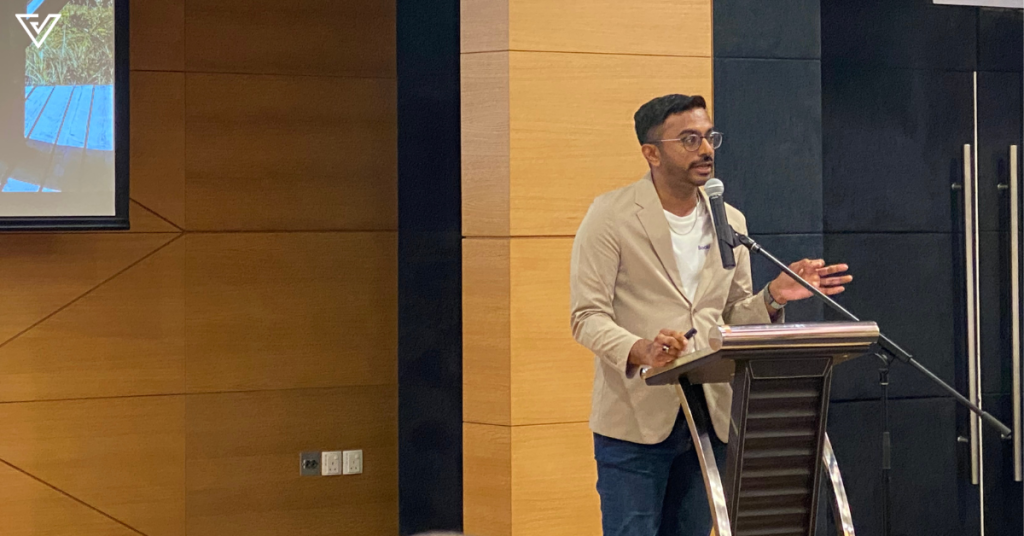
That said, realistically, you don’t go from zero to hero overnight. Sustainability practices aren’t meant to be abrupt changes that don’t last in the long run. So, where can you start without straining your team?
There are a number of ways to answer that, but here are three steps everyone can start off with. These points were taken from Malaysian NGO, Eco-STEPS’s latest event mapping the path for sustainability. The following insights are taken from industry players, including:
- Branavan Aruljothi, Market Team Manager of Booking.com (one of the largest online travel agencies in the world)
- Jasline Ng, Sustainability Manager of Greenview (a consulting and research firm supporting organisations with CSR initiatives)
- Luigi Mazzaglia, Founder and CEO of Vireo SRL (an Italian entity that offers top certifications for sustainability)
- Daniyal Ng, Hotel Manager at The RuMa Hotel & Residences (one of the few accommodations in Malaysia recognised by GSTC)
1. Prioritising local supply and talent
You’ve probably heard of this before but a big part of sustainability is supporting locals. This refers to local businesses and communities, either through purchasing their goods or engaging them socially.
The easiest way to achieve this is by sourcing local produce. Jasline explained, “We usually recommend hotels to start with food. Can you procure your raw materials from somewhere that’s local to you, can you benefit local farmers?”
Of course, this isn’t possible for all kinds of produce, but hotels should prioritise local and seasonal fruits and vegetables when possible.
Another way is by working with small medium enterprises (SMEs) that are offering sustainable products. You should also look to hiring locals more than foreign employees. So if you’re setting up a hotel on an island, the staff should comprise a good number of islanders too.
The goal is to engage with small ecosystem players so that you’re supporting the local community. If their products aren’t of the quality you’re seeking, you could opt to partner for services instead, like tour guides.
2. Forget “go big or go home”
It’s daunting to set up a whole new system in place, especially if you’re just starting out in your sustainability journey.
But instead of overthinking it or preparing to do it “perfectly”, the panel’s advice is to just start.
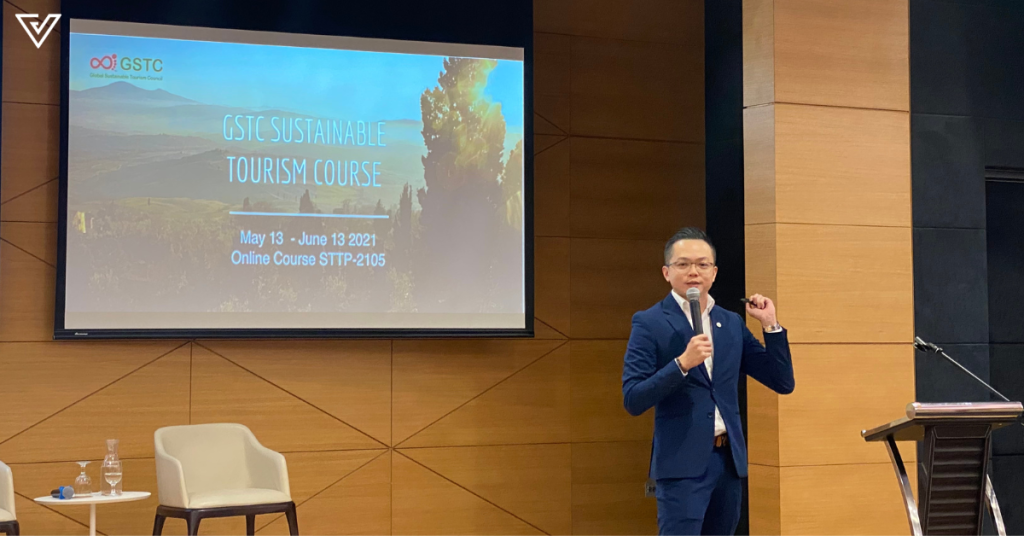
Speaking as one of the first hotels in Malaysia to be recognised by GSTC, Daniyal told hoteliers to start small and start from your own capabilities. “Slowly nurture that in your team, education is the key.”
Branavan supported that by saying, “Sustainability is a large concept that’s the sum of its parts.” It’s about making conscious steps, no matter how big or small. What matters is having a vision and finding ways to achieve it.
“It’s not about your scale, but more about your commitment,” Jaline echoed.
For example, if having on-site water bottling requires manpower you don’t have, then substitute that with a shared water dispenser. When doing this, the key is to communicate your intentions to guests and incentivise with perks, such as how using the water dispenser earns them a cup of free coffee at your in-house cafe.
3. Remember to measure your progress
Progress for the sake of progress isn’t enough. As an organisation seeking to be certified by a third-party entity, you’ll need proof to back your claims. Even if the method of collection isn’t the most accurate or conventional, something is better than nothing.
A simple example Jasline shared was waste data. The travel and hospitality industry is notorious for the waste it produces, but it can be hard to measure. If your local waste contractor can’t provide you with the numbers then you’ll have to think out of the box.
One suggestion is to use internal resources readily at your disposal. You can backtrack by estimating the average weight of one waste bin and finding out how many truckloads you generate per day and month.
This gives you a baseline to know whether you’re improving compared to before. “We’re not trying to shoot for the moon and go straight to being zero waste. That’s very challenging and you’re going to kill your staff. So don’t put too much pressure, just take small steps.” Jasline reiterated.
Apply for your chosen certification when ready
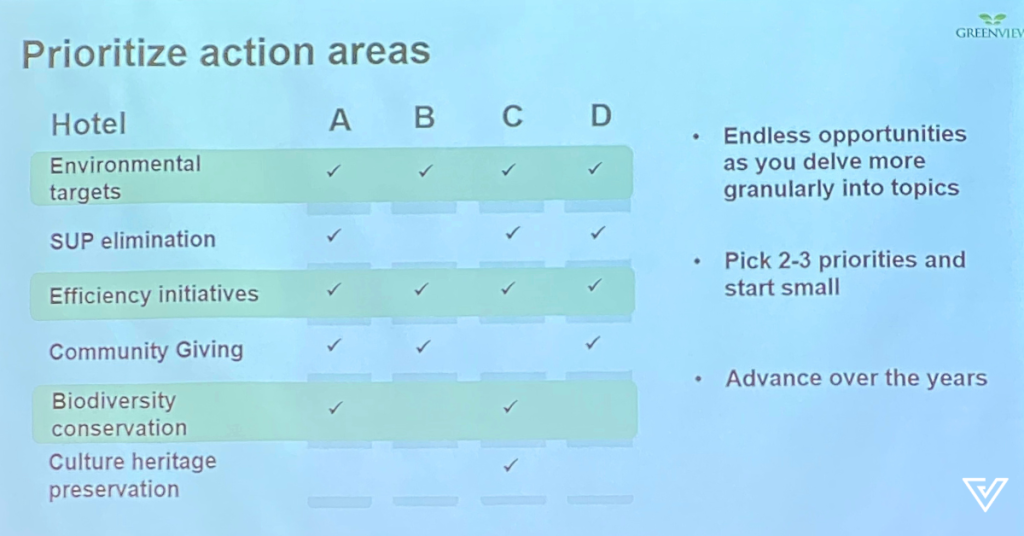
Once you’ve gotten the easy steps out of the way, you can begin looking at bigger sustainability initiatives. This could be installing solar panels, collaborating with local organisations for philanthropic causes, or sourcing from environmentally-friendly suppliers.
And when you’re ready, apply for the sustainability certification. According to Solimar International (a sustainable tourism marketing and tourism consulting firm in the US), a representative from your chosen entity will guide you through the process and assessment.
It seems like a lot to do, but the payoff would be worth it in the near future. Government bodies could also begin encouraging this as the next Visit Malaysia Year, set to take place in 2026, will commemorate the sustainability of the nation’s tourism industry.
Perhaps we could aim for the country or certain states to be a certified destination, like Singapore and Alta Badia in Italy. This would encourage other private businesses to join the movement and put Malaysia on the global map for a greener reason.
- Read articles we’ve written about Malaysian startups here.

